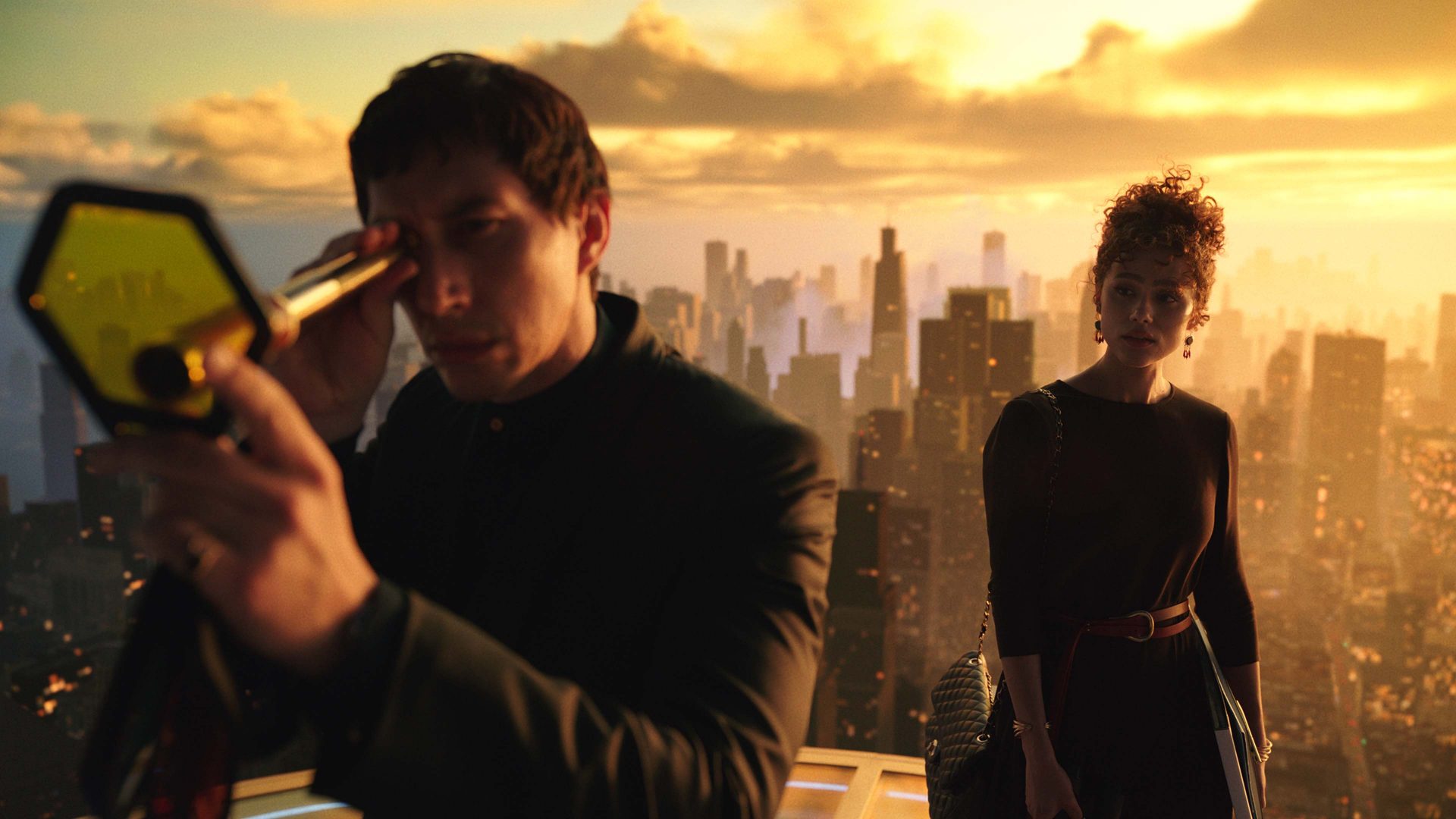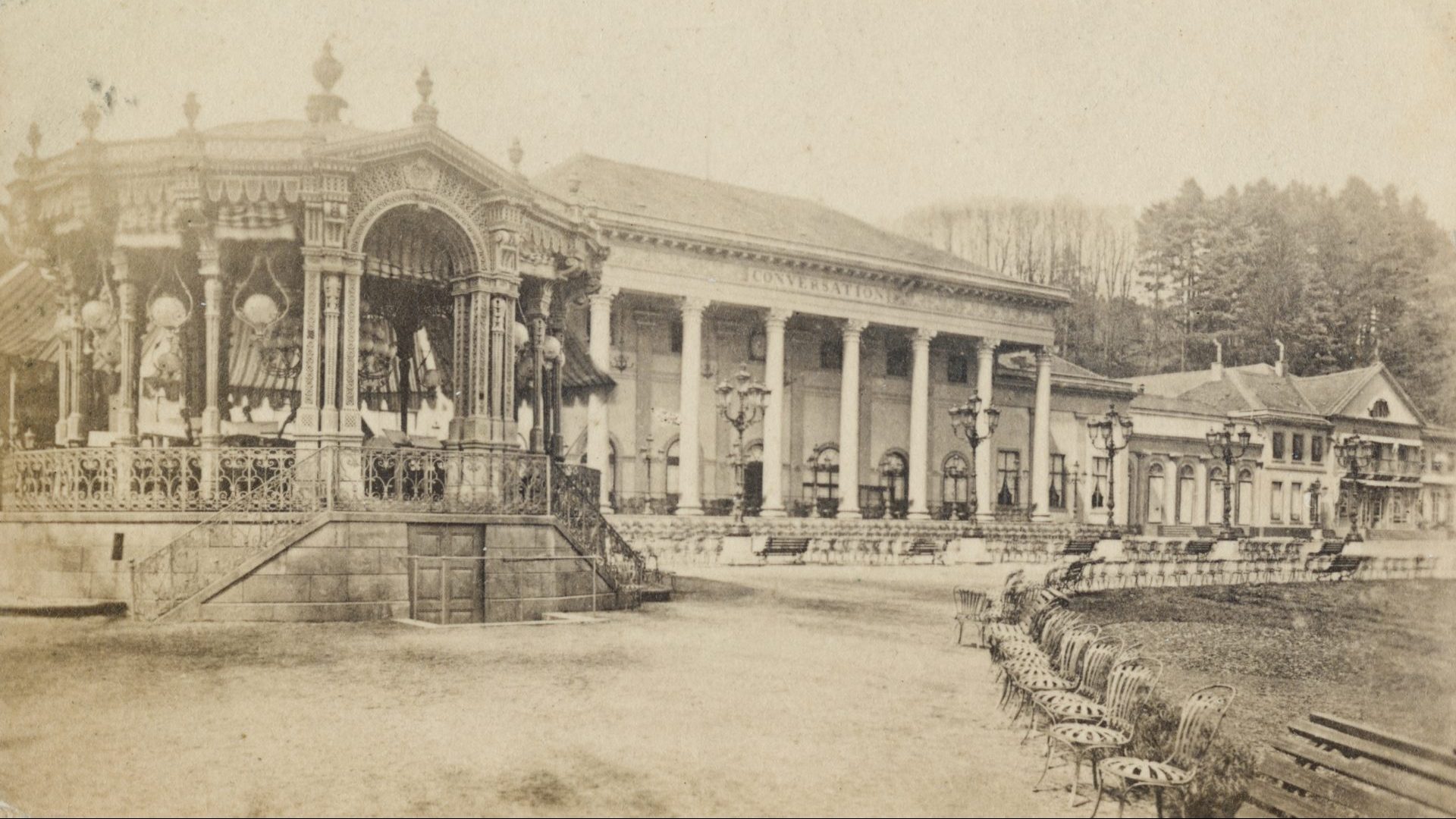Cannes needs buzz. It’s the magic ingredient that makes any film festival tick, the thing everyone’s talking about and looking forward to, the hum of excitement that means there’s a hit on the way, or something remarkable, shocking, controversial.
Cannes needs it to energise all its nooks and industry crannies, something to get the critics debating, the jury thinking, the buyers and sellers flush with cash. As in the insect world, buzz is the sound of things rubbing together and here it’s human hands and celebrity shoulders.
And yes, there was a buzz title at Cannes. It was Francis Ford Coppola’s Megalopolis, which was being talked about long before it was officially unveiled. Talked about as the two-time Palme d’Or-winning director’s long-gestating passion project, self-funded because no one else would.
He’s 85 now so this could be his final film, arriving 40 or so years after he first envisaged it. It certainly got people talking. Sadly, that was because here, from the maker of one of the best films ever made, came one of the worst.
What we were left with was a tide of negative buzz, a bit of depression to go with the clouds of the festival’s opening days. And just when cinema really needs a bit of sunshine and uplift.
There’s no glee to be had in sharing this, none of that so-bad-it’s-good nonsense. This is so bad it’s just horrible to watch – Coppola spent $120m of his own fortune on it and it’s not nearly enough.
The green screen digital effects are ropey, the stars creaky (Dustin Hoffman, Jon Voight, Laurence Fishburne), the plot incoherent and the acting declamatory and delivered by faces that look bewildered by what they have to say and by where they’re supposed to look.
It’s an ugly spectacle, a sort of Matrix, Blade Runner sci-fi futuristic fable about a city on the edge of collapse, the way New York was back when Coppola and his fellow Hollywood brats mined the bankruptcy and paranoia of the nation just after Nixon, in films such as The Conversation, Taxi Driver, Three Days of the Condor and Serpico.
Only now, it looks naff. As we well know, satirising a figure like Trump is now a fool’s errand, with Trump so made of Teflon that it all bounces off him, so there isn’t even the satisfaction of landing a blow for liberalism or anti-capitalism, nor is the film holding the mirror up to any kind of heroism.
Adam Driver here plays what just about must be the hero but even he has invented some indestructible, all-purpose material called Megalon with which he plans to rebuild the city and thus make a fortune.
I won’t – or can’t – dig into the rest of the plot. It’s something to do with the Mayor (Giancarlo Esposito) and his daughter (Nathalie Emmanuel, left helplessly out of her depth) and a financial news reporter called Wow Platinum played by a floundering Aubrey Plaza. It’s all so arid and airless, as if made in a vacuum by a man who won’t listen, the politics and the visuals at the level of cheap TV.
Look, Coppola is a legend and a maestro. And I suppose the sign of a great artist is that, in reaching for ambition, he can produce great works and bad ones. But the sound of a Megaflopolis is not one to make Cannes sing and dance.
I tell you what does: a Spanish-language Mexican drugs cartel sex change musical. Emilia Pérez is the new film from France’s Cannes regular and former winner Jacques Audiard, making his first musical and a film whose wit and ideas you can at least enjoy even as if courts disaster.
Zoe Saldana plays Rita, a put-upon lawyer in Mexico City whose hard work and acumen usually gets big criminals off the hook. She sings about it in the streets while lots of taco vendors join in, the sort of quasi-realist song ’n’ dance number we’ve seen in La La Land and In the Heights, but which has its roots in Jacques Demy’s works such as Palme d’Or winner The Umbrellas of Cherbourg and Les Demoiselles de Rochefort.
Pretty soon, she is doing a solo in the courthouse toilets and then gets a gruff mystery phone call telling her she can make a lot of money if she goes to wait outside. Despite being a grown-up, a lawyer and a very beautiful woman in Mexico City, she of course does this all alone and gets kidnapped.
Tattooed and murderous cartel boss Manitas has a mission for her, which he will sing out: he wants a sex change, and he wants her to sort it out for him. So she flies around the world, researching the best spots for a discreet operation, which includes a choreographed number in a Bangkok clinic occasioning the lyrical chorus: “Rhinoplasty! Vaginoplasty! Mammoplasty!” You have to – and I guess you’re supposed to – laugh.
It’s so bonkers, silly and implausible that it is glorious and perhaps Audiard is drawing attention to the artifice of film itself, where people burst into song, and mixing in the melodrama of telenovela culture and drugs movies, a sort of genre reassignment movie?
The boss is played as a man and woman, the titular Emilia by Karla Sofía Gascón and Selena Gomez is the grieving wife who suspects nothing when, after the faked death of Manitas – Emilia appears claiming to be a kindly aunt wanting to take the family in.
Reader, I went with it, had great fun and liked the songs, the beats for some of which are provided by cartel armies tooling up and loading their machine guns. It could well win the top prize with Greta Gerwig head of the jury this year, the Barbie director being an aficionado of musicals – only Demy’s Umbrellas, Lars von Trier’s Dancer in the Dark and Bob Fosse’s All That Jazz have done it in 77 years.
Another contender that soared for me was Andrea Arnold’s latest, Bird – her follow-up to her documentary Cow and a stablemate in her oeuvre with Fish Tank and her Oscar-winning short, Wasp.
Debuting straight into competition with Red Road back in 2006, she’s long been on a fast-track trajectory to win the Palme and this will do her no harm, a social realist, hard-scrabble fable set in a Kent squat and along the Thames’ estuarial badlands but buoyed by flashes of hope, humour, magic and music.
Bailey (terrifically natural newcomer Nykiya Adams) is a 12-year-old living with her feckless dad called Bug (Saltburn and Banshees… star Barry Keoghan, baring tattoos and a hallucinogenic toad and charging about on an electric scooter). She meets a strange bloke calling himself Bird – transformational and eccentric German actor Franz Rogowski – who’s looking for his long-lost family.
Bailey and Bird strike up an eerie and symbiotic friendship with echoes of that foundational British film text about childhood, Ken Loach’s Kes. I think it’s Arnold’s most accessible film to date, and we had a dance to celebrate at the party afterwards where the film’s cinematographer Robbie Ryan was also the DJ. And no, I don’t think he played Murder on the Dancefloor.
Bird symptoms showed in Cannes’ other British film of note, On Becoming a Guinea Fowl, by Zambian Welsh director Rungano Nyoni, her long-awaited follow up to I Am Not a Witch, which debuted at Cannes in 2017 and won a Bafta.
I’m delighted to report that this film improves on that fine debut, deepening a cinematic world that takes us into the customs and beliefs of this African society, here using a family funeral to show the deep superstitions and rituals of life, particularly for women.
Like, say, Monsoon Wedding, this brilliantly observed and detailed family gathering in Lusaka will reveal deep secrets and Nyoni tells it all with warm humour that somehow also preserves her detachment through an impressive debut performance from actress Susan Chardy as Shula who has returned to the fold from living abroad. It’s a subtle yet complex film of shifting allegiances, female resistance and folkloric power.
Seeking a film that could cement itself as this year’s winner or clear front-runner has been tough. If the Audiard musical is too out there, China’s Jia Zhangke has the pedigree. His film Caught by the Tides continues his career-long obsession with China’s hurtle into capitalism, a whirlwind of a journey that he has charted in both features and documentaries.
Caught by the Tides is a bewitching hybrid of both, spanning 25 years in the relationship of a dancer and club singer Qiao (played by Jia’s wife, regular lead and possible Best Actress almost every time she appears, Zhao Tao) and her manager and boyfriend Bin (Zhubin Li) who work the scene in Datong at the turn of the century.
He’s gruff and violent with her; she just puts on a wig, a grin and does her stuff, in nightclubs, corporate gigs, supermarket openings, wherever she can. When Bin ups and leaves to pursue shady business interests in the south, Qiao eventually sets out to find him, travelling through the rising tides of the Three Gorges Dam project where millions of people are being displaced by the march of progress and water.
No spoilers, but later we will be in pandemic-era China, too, with masks hiding the ageing process of these two lovers, or ex-lovers, it’s quite hard to tell – I’m not sure they even like each other. There’s not much room for love or sentiment in Jia’s work, which focuses on the implacable, relentless stream of progress and the rubble it creates of villages and people.
The background music hops from folk singing to techno, to pop and bluesy laments on traditional Chinese instruments, again a comment on changing trends and western influences.
It’s all an extremely powerful mix, using images that look like old documentaries and still photos that suddenly burst into life and where Zhao Tao sometimes appears. It’s a highly unusual film, reminiscent of this brilliant director’s earlier works such as Mountains May Depart, but I also think it’s some kind of masterpiece.
Back on European soil, there’s The Girl with the Needle, a Danish film, shot in beautiful black and white that insists on plunging the viewer ever deeper into misery as it heaps melodramatic tragedies on its lead character, a Copenhagen seamstress called Karoline played, impressively, by Vic Carmen Sonne.
Karoline believes she’s a widow as her husband has not returned from the Great War, leaving her penniless. Her world changes when the factory owner takes a shine to her, only for fortune to cast her out, pregnant, once more onto the poverty-cobbled streets.
She is eventually taken in by a sinister woman who runs a sweet shop (Danish legend Trine Dyrholm) for whom she becomes a wet nurse.
Dickens would have baulked at some of the screeching plot twists and the plummets into darkness. It really does get depressing (and there are lots of the titular needles, used in many different surprising and horrific ways).
But, there’s something haunting about it, about Karoline’s face, so expressively fixed on surviving all life can throw at it, and the craft and style of director Magnus von Horn’s sinister vision and a grinding music score that sounds like an industrial engine. It most reminded me of watching 4 Months, 3 Weeks 2 Days, the Romanian film about abortion, which surprised many and ended up with the Palme d’Or in 2007 from a similarly early slot in the competition.
Impressive as they are, these films are stalking the Croisette with a low-level threat rather than a buzz, as if waiting to pounce on the prize and steal it away. It’s been that kind of festival and I sense a surprise, if not a shock, waiting in the shadows.
The 76th Cannes Film Festival runs until Saturday, May 25




